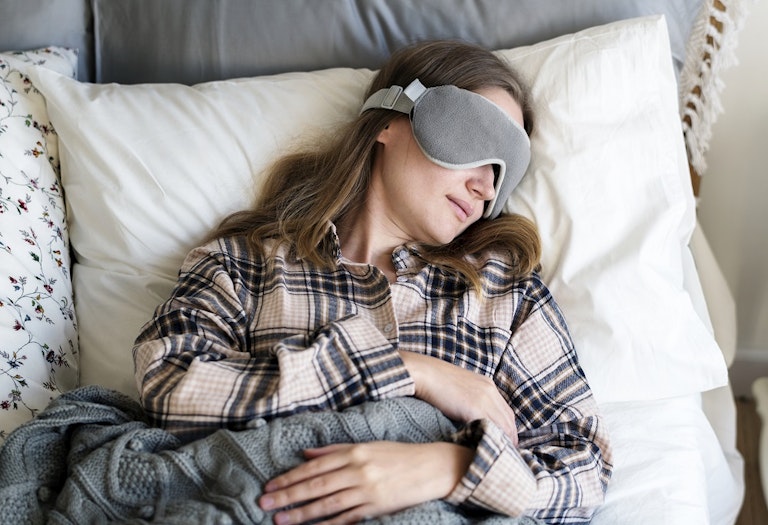4 Ways to Get Enough Sleep at University

University life can be tough. There’s a lot to juggle, including classes, assignments, presentations, internships, extracurricular activities, part-time jobs, work-life balance, and above all – finding the time to sleep!Lack of sleep – or even a disturbed sleep cycle – can have serious health implications. A good night’s sleep is essential for your body to repair itself, balance hormones, commit things to memory, and de-stress.
Remember that the concept of ‘catching up on sleep’ and ‘sleep debt’ is not research-backed. That means sleeping for long hours over the weekend to make up for the sleep you didn’t get during the weekdays likely holds little to no benefit.
But there are a few ways to ensure that you get the rest you need, even in university.
Here are four tips to get enough sleep during university life.
Stick to a Sleep Schedule
The body’s circadian rhythm – also known as the biological clock – is aligned with sunrise and sunset. As such, consistency in your sleep and wake up timing can considerably improve your sleep quality.
On the other hand, disturbing the sleep rhythm by being irregular in sleeping times or sleeping and waking late can make it hard to fall asleep when you actually want to sleep. It happens because irregular sleep timing leads to an imbalance in melatonin, a chemical in the body that signals the brain to doze off.
Thus, it’s a good idea to create a sleep schedule and be consistent in waking up and going to bed at similar times every night for a few weeks. Doing so will help your circadian rhythm slowly fall into place. Once that happens, you may not even need an alarm to wake up in the morning.
Limit Caffeine Intake
A caffeine boost gives you a few more hours of wakefulness, but at what cost? While coffee offers benefits like improving performance, focus, and energy, it can disturb your sleep schedule if consumed late in the day.
Research shows that caffeine intake after 2 pm can stimulate your nervous system, preventing your mind and body from relaxing and falling asleep at night.
While it is understandable why you would want to stay up a little later than usual during university life, try to limit your coffee intake after 2 pm. Instead, go for a walk to refresh yourself if you feel like you need some energy.
Exercise
Exercise is one of the best ways to improve your sleep and overall health. So, if you’re trying to exercise consistently, be sure to make movement a priority by scheduling it into your week.
Exercise can reduce insomnia and help your body unwind before bed. Ideally, you should exercise earlier in the day and definitely no later than two hours before bed, because physical activity can be stimulating for some people and increases alertness.
Studies suggest that exercise almost halves the time needed to fall asleep and increases your sleep by about 40 minutes. Also, you can get good quality sleep at night if you exercise during the day. It can even be more effective than most sleeping pills and is therefore something you should incorporate into your routine consistently.
Optimize Your Bedroom Atmosphere
A sleep-conducive bedtime environment helps you power down quickly for bed and fall asleep faster. Distractors like noise, light, and even temperature can affect your sleep time and quality. You can drastically improve your sleep quality by removing distractors and optimizing your bedtime atmosphere.
If you’re a student living in dorms, controlling light and noise can be challenging, especially if you’re sharing a room. In such a situation, you could keep earplugs and eye masks handy so that you can block out light and noise even if your roommate needs the lights on. Fortunately, in terms of off-campus housing, Waterloo has plenty of choices for student living where you don’t have to share a room.
Final Thoughts
A good night’s sleep will help you function better during the day. It will improve your academic performance and help you stay fit and healthy, both mentally and physically. Of course, it’s okay to be a little flexible when you need to be, but for the most part, maintaining a sleep schedule will help you keep up with your busy and hectic university life.

